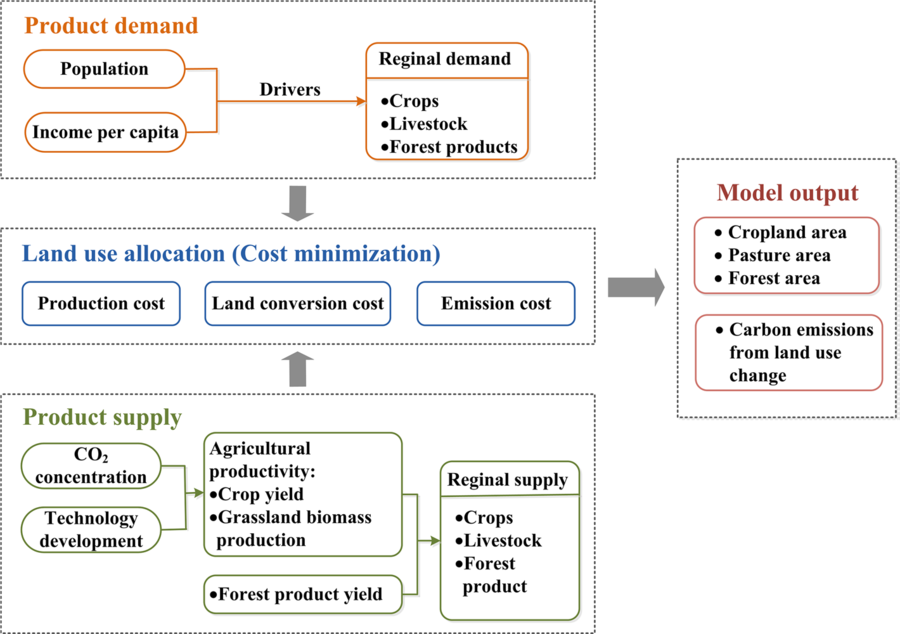Land-use - C3IAM: Difference between revisions
No edit summary |
No edit summary |
||
| Line 12: | Line 12: | ||
(3) Carbon emissions costs which consider the carbon costs caused by land use change in mitigation scenarios. | (3) Carbon emissions costs which consider the carbon costs caused by land use change in mitigation scenarios. | ||
[[File:7.png|Figure 1. The framework of C<sup>3</sup>IAM/EcoLa | [[File:7.png|left|900px|thumb|Figure 1. The framework of C<sup>3</sup>IAM/EcoLa]] | ||
Latest revision as of 13:07, 5 August 2021
| Corresponding documentation | |
|---|---|
| Previous versions | |
| Model information | |
| Model link | |
| Institution | Center for Energy and Environmental Policy Research, Beijing Institute of Technology (CEEP-BIT), China, http://ceep.bit.edu.cn/english/. |
| Solution concept | General equilibrium (closed economy) |
| Solution method | Optimization |
| Anticipation | |
The future patterns of land use have direct influence on GHG emissions and mitigation potential for land use sector and food supply. The C3IAM/EcoLa model is a global multi-regional land use allocation optimization model, which covers the agricultural and forestry sectors (see the following Figure 1). It can be used to analyze land use change in a long-term period. The primary objective of the model is to minimize the total cost of production under consideration of agricultural demand in 12 regions.
Major types of cost in C3IAM/EcoLa are:
(1) Production costs of crop and livestock production, which are obtained by a total sum of the costs of labor, capital and intermediate inputs divided by the land area obtained from C3IAM/GEEPA;
(2) Land conversion costs which are exogenously determined by the cost of new additional land and investment into infrastructure;
(3) Carbon emissions costs which consider the carbon costs caused by land use change in mitigation scenarios.
